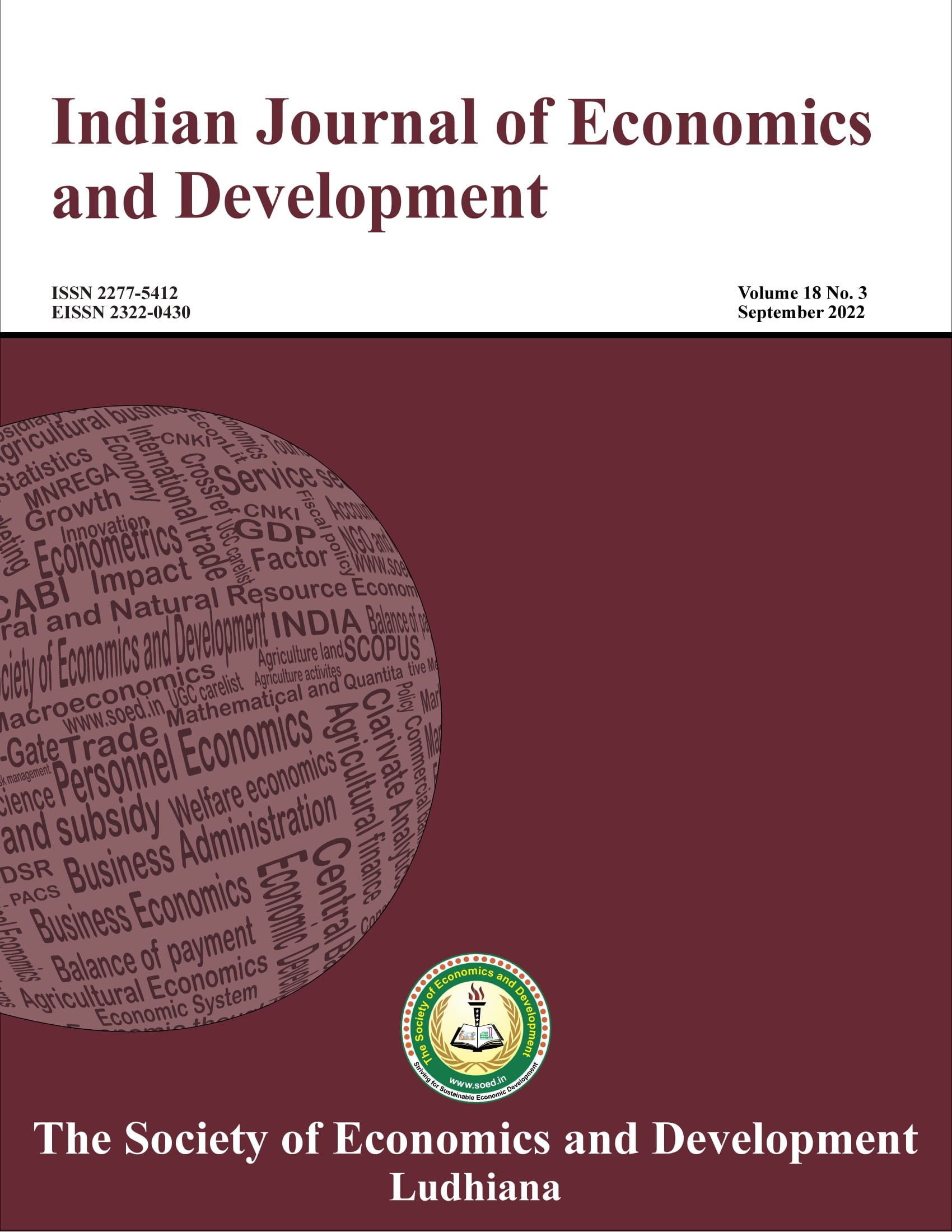Performance and Prospects of Agricultural Commodities in India: An Economic Analysis

Price: ₹ 500
Author: Kapil Dev , Dev Raj , Ravinder Sharma and Amit Guleria
Author Address: State Project Officer-Livelihood, Rural Development Department, Shimla-171009 (Himachal Pradesh), Assistant Professor, Department of Agriculture, Chandigarh University, Mohali-140413 (Punjab), Professor, Dr. Y.S. Parmar 3 University of Horticulture and Fo
Keywords: Comparative advantage, growth, instability, trend.
JEL Codes: B23, C13, F10, F15.
Abstract
Agricultural
exports from India have changed dramatically in recent years. Against this
backdrop, the current study looked at the trend in agricultural commodity
exports from India from 2000-01 to 2017-18. There was a significant growth rate
in agricultural export in the last eighteen years, with wide variations between
several commodity groups. The growth in the case of cotton (raw and yarn),
other cereals, meat, groundnut, sugar and molasses, spices, and rice was 33.80,
21.97, 21.43, 20.32, 18.31, 16.92, and 16.45 per cent. The growth rate was low
in wheat, tea, cashew, and floriculture products. The study revealed a
significant increase in the share of export of rice (10.27 to 22.26 per cent),
meat (5.13 to 11.90 per cent), spices (5.65 to 8.89 per cent), sugar (1.76 to
2.36 per cent) and cotton (0.77 to 4.85 per cent). The share declined in some
commodities like marine products, coffee, tea, cashew, and fruits. The Revealed
Comparative Advantage (RCA) was improved in the case of cotton, grapes,
groundnuts, maize, potato, pineapples and rice but declined in the case of
apple, coffee, cashew nuts, ginger, mangoes, oilseeds, onion, peas, tea and
wheat. Price volatility discouraged farmers from investing in agriculture,
compromising long-term sustainability.
Description
Indian Journal of Economics and Development
Volume 18 No. 3, 2022, 655-663
DOI: https://doi.org/10.35716/IJED/22005
NAAS Score: 5.15 (2022)
Indexed in Clarivate Analytics (ESCI) of WoS
Indexed in Scopus (SJR: 0.18)
UGC Approved (UGC-Care List Group II)



